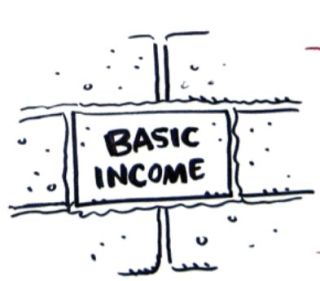Basic Income and Automation - New Study

The authors of this new study, in an effort to complement existing research dealing with jobs and salaries, designed an experiment to demonstrate the effect of automation on productivity, in which workers make 'productive effort decisions' and managers can choose between the workers or a robot to do certain tasks. Once the baseline results of the experiment on automation and productivity is established, the authors then looked at how they change when workers can access a basic income of one-fifth of the workers' median wages, and then the effect of imposing a tax on firms who replace workers with robots.
The findings from this experiment suggest that threat of replacement by robots does not impact worker productivity, that is, the amount of effort they exert. A second finding was that neither the provision of basic income nor the imposition of a tax on the use of robots decreased worker productivity. The third finding was that a robot substitution tax may reduce the probability of worker substitution however this does not result in 'reciprocal altruism' in that workers who were not substituted by a faster robot did not increase their effort in their work.
Social Justice Ireland has long argued for the introduction of a Universal Basic Income (UBI) for Ireland and welcome its inclusion in the Programme for Government, however we are disappointed in the lack of progress in its implementation. Many of the arguments against UBI - that it would act as an disincentive to work, that it would result in a loss of productivity - have been debunked by experiements in Finland, Canada and Nairobi. The introduction of an artists basic income in 2020 to try to mitigate some of the damage caused to the arts sector by Covid-19 restrictions was a step in the right direction, but more action is needed.
The final argument is that of affordability, however the affordability of any policy depends largely on what parameters are set. For UBI, affordability depends on the level of the payment, which benefits it replaces and which remain, and what the eligibility conditions are. It is important to remember that UBI would replace most core social welfare payments like child benefit, unemployment benefit, and pensions, i.e. it would not be paid in addition to these, but instead of. It should replace tax credits for working people, saving several billions of euros more.
If we are to address the economic and societal damage caused by the current pandemic, we need to reexamine the role of the citizen and the State - the Social Contract - to ensure that those already at risk of poverty are not left further behind. We need to reconsider the role that policies such as UBI and Universal Basic Services - policies which have been around for centuries - could play in Ireland's recovery.